MGM fast-tracked its Child's Play remake into production less than a year ago, failed to get franchise creator Don Mancini's blessing, and had to move forward with a Chucky voiced by someone other than Brad Dourif. They cast queen-of-the-deadpan Aubrey Plaza to improbably play a single mom, and then once filming wrapped they put out a trailer which gave away virtually the entire film. On top of all that, there mere mention of "remake" is enough to cause certain horror hounds to wince in remembrance of the regrettable slasher remake craze of the early aughts.
For all of those reasons and more, the new Child's Play carries a lot of baggage. However, you wouldn't really know any of that based on what's up on screen. Director Lars Klevberg ( Polaroid), cinematographer Brendan Uegama ( Chilling Adventures of Sabrina), producers David Katzenberg and Seth Grahame-Smith ( It: Chapter 1), and screenwriter Tyler Burton Smith (the video game Quantum Break) have quite successfully updated the franchise for the digital age. In the process, they made one of the best Child's Play films of all time.
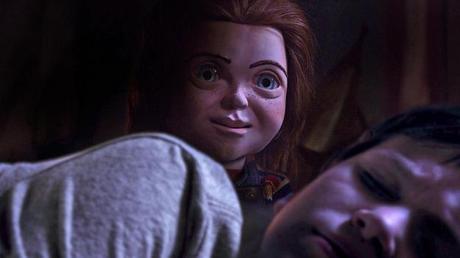
The plot centers on a line of Buddi dolls put out by a fictional tech stand-in for Google or Apple. While the doll can sing songs to your kids, make sure they don't forget their science book, and serve as a secret crib camera, he's really designed to act as a hub for all of the smart devices in the home, remotely controlling all of them via vocal commands. A malfunctioning Buddi doll named Chucky finds its way to Karen Barclay (Plaza), who passes it on to her 13-year-old son Andy (Gabriel Bateman) as an early birthday present. It's not exactly love at first sight, but once Andy realizes Chucky has a more adaptive AI than most Buddi dolls they become close pals, not unlike Rachel and the little Miley Cyrus-voiced Ashley Too in the most recent Black Mirror season.
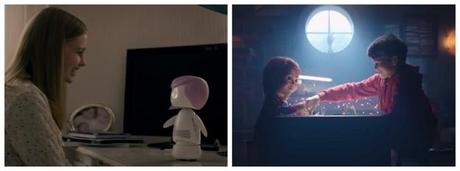
Naturally, like any kid in 2019 Andy uses Chucky to perpetrate a series of lighthearted YouTube pranks, and when other kids in his apartment building notice he gains several new, actual human friends. However, when these new friends take up more of Andy's time Chucky tries his best to get noticed again. It doesn't go well, and before too long Chucky graduates to thinking everything will go back to normal if certain people are disappeared. Gory kill scenes ensue.
What's interesting about this inevitable evolution in the plot is that Chucky arguably never truly turns toward capital "E" evil. Voiced by Mark Hamill with a childlike naivete, most of Chucky's most menacing or threatening lines are simply repeats of phrases he overheard humans say. He only even learns how to kill from observing Andy watching Texas Chainsaw Massacre 2!
His objective is rather pure: to play with Andy again. Since undying loyalty to his assigned child is baked into his core programming, that's exactly what Chucky is trying to honor, but with his inhibitors turned off - not a spoiler, we see that happen in the opening scene - he doesn't know there's a moral red line he shouldn't cross.
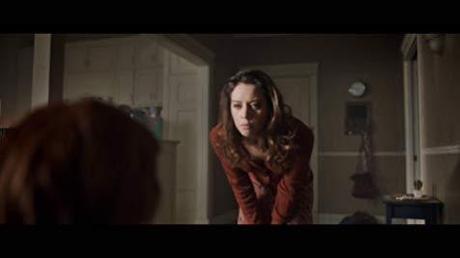
This put Chucky on a collision course with Andy's mom (played about as sincerely as Plaza as has ever been), her asshole boyfriend (David Lewis), and a local cop (Brian Tyree Henry) whose mom (Carlease Burke) lives in Andy's apartment building. By the end, however, Chucky's definition of who is truly standing in his way grows much broader and nonsensical, likely because the filmmakers wanted to stick the landing with a go-for-broke, "holy shit!" splatterfest finale. It's a mighty big swing on their part, but I went along with it.
There are, of course, some fans who will never give MGM the benefit of the doubt. They done Don Mancini dirty! He has a Child's Play TV series with all of the old characters and Brad Dourif's Chucky coming to SyFy just next year, and now because of a copyright loophole there's this weird remake which didn't include any of the original creatives and takes things in a wildly different direction. #NotMyChucky
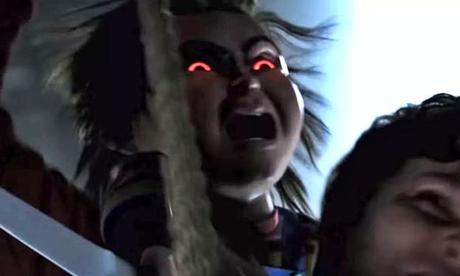
Which, fair. Mark Hamill's Chucky isn't a wisecracking slasher like Dourif's. However, by virtue of his 2019 tech upgrade he's a far more dangerous villain, less reliant on stalk-and-slash and more interested in turning our surroundings against us. At times, this makes for a weird combination. Chucky often does as you'd expect - he runs around stabbing people. Other times, he's far more like Hal 9000 orchestrating our doom.
That puts the whole film in the odd position of feeling torn between wanting to be an homage to 80s slashers and wanting to be a sci-fi parable in the tradition of Black Mirror. It's better at the latter than the former, but because of this new sci-fi take on the material MGM has given us a remake which stands on its own without ever impugning the legacy of the original.
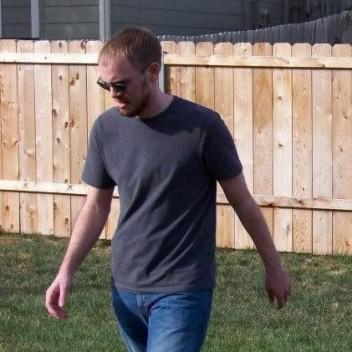
Grew up obsessing over movies and TV shows. Worked in a video store. Minored in film at college because my college didn't offer a film major. Worked in academia for a while. Have been freelance writing and running this blog since 2013. View all posts by Kelly Konda

